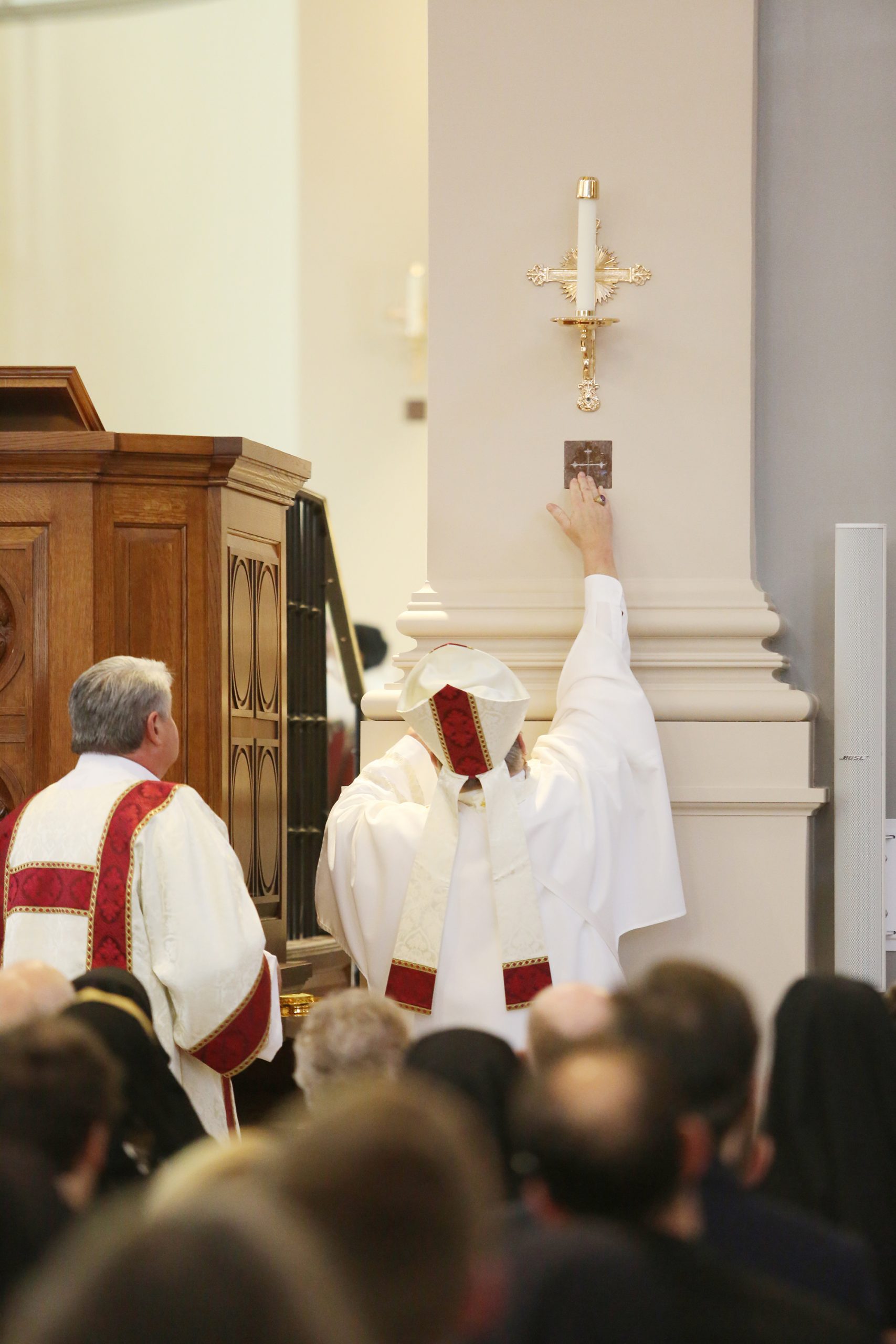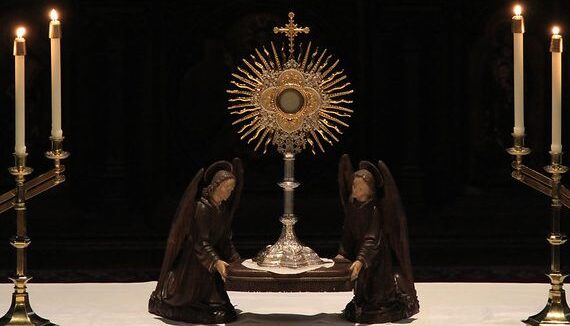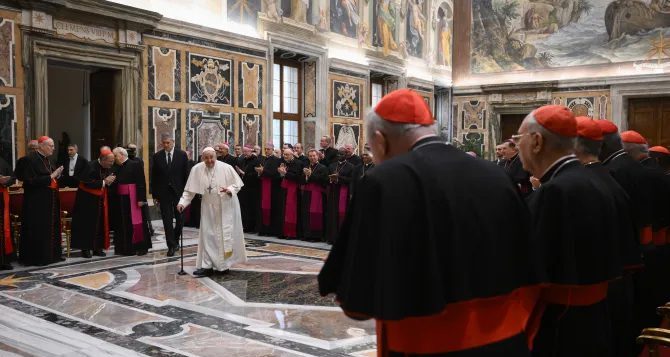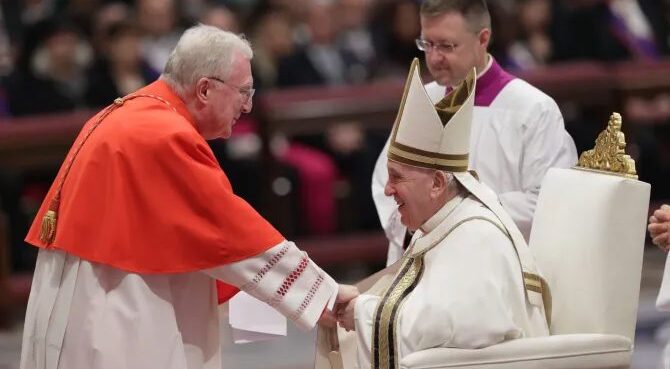Alas, the 12th Sunday in Ordinary Time will not be celebrated this year. Instead, Sunday, June 24, 2018 will observe a righteous replacement and worthy feast in its own right—the Solemnity of the Nativity of St. John the Baptist. But in appreciation of the twelfth Sunday—and dozens of other liturgical treasures—Adoremus offers these reflections by Dr. Donald DeMarco.
A dozen seems to be the ideal number of flowers for a bouquet of roses. Derived from the Latin (duo + decem or 2 plus 10), it is a more prosaic way of expressing 12, a number rich in cosmological, artistic, philosophical, theological, and therefore liturgical significance.
The day is divided into two units of 12, the first culminating at noon, the second at midnight. There are 12 numbers on the face of the clock. There are 12 months in a year. The zodiac has 12 signs. The most important of the Greek gods were the Olympians who numbered 12. Hercules had to perform 12labors. There are 12 days of Christmas. Shakespeare’s comedy “Twelfth Night” was written for the last day of the Christmas Season.

The ancient Greeks found special meaning in the richness of this number. Its divisors, 1, 2, 3, 4, and 6, indicated that it was a highly composite number. That is to say, the number 12 is composed of six twos (6×2), two sixes (2×6), four threes (4×3), and three fours (3×4). In fact, they believed that 12 was a perfect number. Therefore, it logically became central to many systems of counting. For example, there are 12 inches in a foot. There are twelve notes in the musical scale (seven white plus five black notes). John Milton’s Paradise Lost is divided into 12 parts, in imitation of Virgil’s Aeneid. Alcoholics Anonymous offers a 12-step program.
There are 12 jurors in jury trials. In the Eumenides, a play by the Greek tragedian Aeschylus (died c. 456 BC), the goddess Athena summoned 12 citizens to serve as jurors. In English Common Law, the tradition of 12 jurors dates to the 10th century law code when it was introduced by a man who was twice King of England, but nonetheless saddled with the comical name of Aethelred the Unready. This number gave title to the play and subsequent movie about jurors deciding a murder case, Twelve Angry Men. Twelve knights girded King Arthur’s round table.
The number 12 is used repeatedly in the Bible, 187 times, to be exact. At Elim there were 12 wells of water (Exodus 15:27). There were to be 12 “cakes” in the Tabernacle (Leviticus 24:5). The leaders of Israel made an offering of 12 oxen (Numbers 7:3). Solomon appointed 12 governors over all of Israel (1 Kings 4:7). Elijah built an altar of 12 stones (1 Kings 18:31-2). It cannot be a mere coincidence that the number 12 is utilized so often in Scripture. Its meaning goes far beyond its mathematical inscription.
The Septuagint translation of the Old Testament, made at the request of Ptolemy II, involved the work of six Jewish scholars from each of the 12 tribes of Israel. The number 72, significantly, is six times 12. These scholars worked independently from identical versions of the Hebrew text. As a result, the Old Testament was available to Alexandrian Jews who were fluent in Greek, the common language of Egypt at the time, but not in Hebrew. Joseph Cardinal Ratzinger, in his book, Called to Communion (1991), remarks that “The ascription of the Greek Old Testament produced in Alexandria to seventy (or seventy-two) translators was meant to express that, with the appearance of this Greek text¸ the sacred book of Israel had become the Bible of all nations—as subsequently happened in reality thanks to the Christian appropriation of this translation.”
In Christian theology, the number 12 has special significance in many ways. Scripture’s first recording of Jesus words occurs when he is twelve years old. The number 12 appears 22 times in the Book of Revelation. Its most important significance in the New Testament is in relation to the 12 Apostles. According to St. Augustine, the mission of the Apostles was to carry the 3-person God (the Trinity) to the 4 corners of the world. This is an interesting speculation.
More in keeping with Scripture, however, the importance of this number lies in its continuity, consistency, and conformity with the Old Testament in several important ways. Ishmael, who was born to Abraham through Hagar, had 12 princes. Jacob had 12 sons who became the ancestors of the 12 tribes of Israel. Consequently, based on the broad range that 12 represents, the Church that Christ founded can be seen as open to everyone. Its leadership is not to be established through biological descent, as it is in the case of the Anglican Church, for example, where the reigning monarch who inherits the throne is always its head. In addition, the significance of the number 12 is further attested by the fact that after the betrayal by Judas this important number was restored with the selection of Matthias: “Then they cast lots, and the lot fell to Matthias; so he was added to the eleven apostles” (Acts I: 23).
In this theological context, the number 12 signifies continuity, communion, and collaboration. It is important to realize that the “Twelve” received the title “apostles” only after the Resurrection. Initially their significance was tied to the notion of community: “He appointed twelve that they might be with him and that he might send them out to preach” (Mark 3:14). The need for community preceded the need to transmit the Gospel message.
The 12 Apostles were not experts in any way. Nor were they chosen because of their lofty status in society. Their selection was meant to represent a broad spectrum of humanity, but in the form of ordinary human beings. G. K. Chesterton, in his inimitable style, emphasizes this point in an essay he calls “The Twelve Men” (from his book Tremendous Trifles, 1909): “When it [a civilization] wants a library catalogued, or the solar system discovered, or any trifle of that kind it uses up its specialists. But when it wishes anything done which is really serious, it collects twelve of the ordinary men standing round. The same thing was done, if I remember right, by the Founder of Christianity.”



